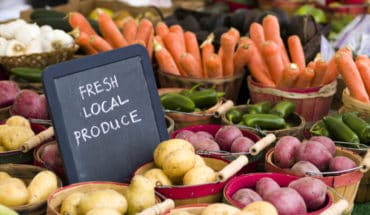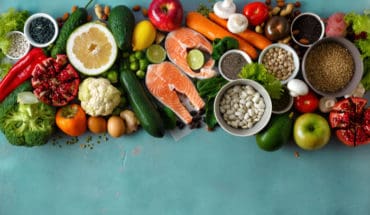Ahead of Ramadan, 7 lessons in fasting: Ramadan is the ninth month of the Islamic calendar, observed by around 1.8 billion Muslims worldwide – and is a time of fasting, prayer, reflection and community. Dictated by the lunar calendar, this year Ramadan is expected to fall on the evening of Sunday 10th March, ending on Tues 9th April in the celebration Eid-al-Fitr.
One key element of the holy month is fasting – with people abstaining from food and drink every day between the hours of sunrise (suhoor) and sunset (iftar). The fast at the end of every day is often followed with a meal prepared by and enjoyed together with family, friends and community.
Farzanah Nasser (@farzanahnasser_nutrition) Nutrition & Functional Medicine IFMCP practitioner and Revive Active Ambassador explains how she thinks people could improve the way they approach fasting and says highlights the valuable lessons we can all learn to support the body and mind in everyday life.
Seven easy lessons from Ramadan fasting to take into everyday life:
1. Good sleep = a healthy gut – Ramadan throws normal routines into disarray, with sleep disrupted to re-fuel before sunrise each day. As the month progresses, fasting takes its toll on sleep, energy levels and mood, with the adrenals becoming depleted for some. So, this period serves as a good reminder of the importance of sleep and in particular, the role it plays to support our recovery, energy, mood and immunity. Regular, consistent sleep helps to promote good gut bacteria which contributes to the overall gut microbiome. To support good sleep:
· Try and avoid electronics 2 hours before bed, if you need to use your phone or laptop switch it to nighttime mode
· Havea calming nighttime tea that includes ingredients like chamomile, lavender or lemon balm to support sleep
· Put your legs up against the wall, relax and breathe with awareness for 2-3 minutes. This is a great way to calm the body and mind before bed.
· Magnesium (often called nature’s tranquiliser) can be helpful with supporting good sleep, either through a supplement, bath (Epsom salts) or food. Magnesium rich foods include: leafy green vegetables, lentils, beans, nuts/ seeds, dark chocolate and avocado
· If you are prone to waking up in the middle of the night, having a small tryptophan rich snack before you go to bed can be helpful for some. An example would be an oat cake with almond butter and some banana
2. Focus on fibre Fasting can cause constipation if we are not eating enough fibre, which is not only uncomfortable, but means that we’re not able to eliminate toxins from the body. So, it’s helpful to incorporate a diversity of plant foods which include fruits, vegetables, nuts, seeds, beans, legumes, wholegrains, teas, herbs and spices. I always recommend starting your main meal with foods that contain “bitters” like kale, lemon, olive oil, apple cider vinegar, green tea, chicory, rocket and watercress, as examples. These foods help stimulate digestive juices to help breakdown your food so you can absorb nutrients better. They will help slow down the sugars released from a meal helping with a better blood sugar response (better energy, focus and calm). Eat your greens raw or cook quickly (steam or stir fry) with a dash of spice or chilli. This is a simple but key practice to take from Ramadan into daily life to aid digestion, support healthy bowel habits & reduce bloating and wind.
3. Hydrate for health Many people are surprised to learn that you also can’t drink when fasting and it is one of the most challenging aspects of the month.
Ramadan reminds us of our basic human needs and the simple power of hydration for our body and mind to reach homeostasis. One of the key rituals I take from Ramadan into daily life is to mix up a high-quality super supplement sachet into a drink every morning for a super easy and convenient way to power up hydration levels. Everyone in my family, from parents to teens, takes Zest Active – a scientifically formulated blend of 25 active ingredients including vitamins, minerals and beta glucans combined with other nutrients such as, Taurine, L-Theanine and L-Lysine to support your immune system, supercharge your natural energy stores, enhance mental clarity and focus and improve muscle function.
4. Double bubble! Fasting means that you are even more tired at the end of the day than usual – and it can be easy to fall back on ready-meals, fried foods, takeaways, sweet treats, fizzy drinks or caffeine to re-fuel and re-fire your energy levels! Most people need to carry on with their normal routines during the month – working, going to school or uni, shopping, exercising etc – so it’s vital that you have a meal plan to avoid reaching for the Uber Eats! Batch cooking and meal planning is one of the cornerstones of my advice to all clients. For family meals, double up when cooking and freeze portions to grab when you need at the end of a busy day. With snacks, have wholesome foods on hand in the fridge to manage and sustain energy levels like hummus dips, chopped raw salads, protein balls and stuffed dates with nut butter.
5. Do your food “maths” (Add not subtract!) One of the “rules” I like to follow for everyday nutrition is to think about what ingredients I can add into my diet to maximise the health benefits for body and mind. Too often nutrition advice focuses on cutting back on certain foods – but there’s such a wealth of versatile ingredients available that can transform a dish or snack into a nutritious powerhouse! So, for example, rather than breaking fast with a just a date, try including a couple of nuts, dried fruit and seeds (walnuts, pecan, hazelnuts, flaxseeds, pumpkin seed, cranberries, sultanas etc) or add a nut butter. You could also drizzle with a good quality dark chocolate! Rather than a quick energy “spike”, this nutritious snack will help stabilise your blood sugar and is a mix rich in vitamins and minerals including Vit E, B6, niacin and folate and minerals include magnesium, zinc, plant iron, calcium, copper, selenium, phosphorus and potassium. And don’t worry – 80% plus dark chocolate is good for mood and helps to feed good microbes in the gut. Handy ingredients to add for an everyday energy boost include; chickpeas or butter beans to throw into a salad, sprinkle anti-inflammatory powdered turmeric into scrambled eggs or a smoothie, add cashew nuts to stews or pop a super supplement sachet into to a smoothie.
6. Gather round! The joy of breaking the fast at the end of the day with a meal at home or at a community centre is an incredibly important part of Ramadan – and it’s a great reminder of the wellbeing benefits of enjoying and sharing food with others. The main meal after sunset (iftar) is a natural way to connect with family and friends, providing a opportunity to catch up on everyone’s news, views, stories and experiences. The pace of modern life is hectic, and getting everyone around the table can be a challenge – but it’s worth it, not least for the chance to create memories and enjoy delicious food together! Also, research1 shows that children who eat dinner with their family have higher self-esteem, are more resilient and do better at school.
7. Celebrate (mindfully) – Eid-al-Fitr marks the end of the month of Ramadan and is a joyous occasion of which food is a central part! Whilst this time is by its very nature about feasting, I think we still need to do this mindfully. While foods vary depending on cultures, traditional dishes are often decadent and rich. Savoury meals may include delicious dishes such as biryani, pilau, samosas, lamb & lentil patties, nunor bora and breads. Sweet treats are high on the menu at Eid – with sweet zarda & handmade biscuits like nankhatai, gulab jamun and rasmalai on offer.
So finally, as a nutritionist, here’s my advice on moderating these occasional indulgences – be mindful of portion sizes and don’t forget to start with your greens or vegetables that can help support a healthier glucose curve than if you start with dessert. Many people would have taken caffeine out of their routine during the month and it can be such a joy to reintroduce this once again. Enjoy your caffeine mindfully and with gratitude, enjoying each sip. Also try and always have your caffeine after breakfast and not on an empty stomach to better support energy and focus and keep active and try and get your steps in daily, fresh air and sunlight
References:
1.Harvard’s Project Zero Family Dinner Project
- New lipid-based pathway discovered as key to memory formation - 25th June 2025
- Crucial link could explain how Alzheimer’s takes hold - 25th June 2025
- Understanding Your Mind Can Improve Daily Life - 25th June 2025







